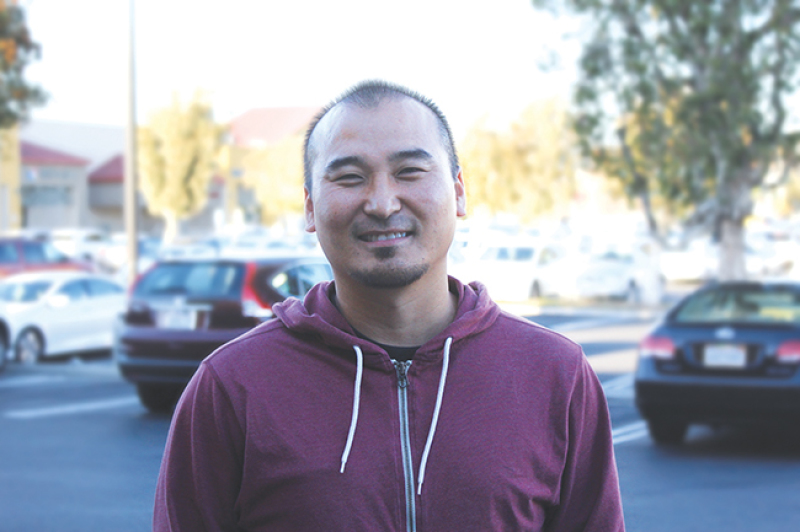
Reverend Justin Kim has experienced ministering in the Korean immigrant church context in all four corners of the country - in Virginia, Florida, Washington, and now, in California.
Kim, who in August became the lead pastor of Bethel English Church, the English ministry at Bethel Korean Church in Irvine, CA, said his time in several different churches in four states through over 15 years of his time in ministry have given him a range of painful, as well as hopeful, experiences. Painful experiences of disappointments and letting go of personal idols; hopeful experiences of sincere reconciliation and meaningful cooperation.
Based on his experiences, Kim said, there are a few "key ingredients," as he put it, that help to foster a healthy dynamic between the Korean ministry (KM) and the English ministry (EM) in a Korean immigrant church.
"It's like cooking a good meal -- you need to get the ingredients right for it to taste good," Kim said.
One of the key ingredients is "for the lead pastors of both the KM and EM to have the same vision, and to have a good, trusting relationship with each other," Kim said. He added that he himself has had both negative and positive experiences in this regard - not sharing the same vision with the senior pastor of one church, and finding in the senior pastor of yet another church a mentor with the same heart.
"Churches that have pastors with the same heart, I've seen are healthy, and both KM and EM were growing," Kim said. "Whether the two pastors are just spending time together through meetings or eating, I think they have to have some time together outside of just a ministry context."
Another key ingredient is for leaders of both ministries as a whole to spend time together as well, whether it's through serving together or having more casual fellowship together.
"They say friends who pray together, stick together," Kim said. "It really helps when the two ministries seek opportunities to do ministry together, like doing outreach to the homeless, or going on missions together, which is what I see a lot of churches doing. It's challenging because you've got cultural and language issues, but when you can overcome those things to serve, pray, laugh, and have fun together, that naturally bonds everyone together."
Kim shared that he felt this even recently at a staff retreat he attended with Bethel pastoral staff.
"Staff from both the KM and EM were there together, and the highlight for me was playing chok-gu with them," Kim recalled. "It was competitive, but goofy and fun, and I just saw a different side to these men. It wasn't just suit and tie - they're fathers and husbands, and they like having fun."
A striving for mutual understanding from both ends is another important ingredient, Kim said. The KM - the older generation - must learn to let go, trust, and empower the EM - the younger generation - and allow them to make mistakes, he explained. But on the other hand, the EM must also take ownership and responsibility for the church and ministry as well, and continually cultivate a teachable heart toward the older generation.
"Among many things, there are three important aspects we can learn from the KM," Kim said, "and that's their passionate prayer life, their passion for missions, and their sacrificial service. We're comfortable because we didn't grow up in wartime like many of them did, so we aren't as sacrificial or giving as many of the older generation are."
For example, he said, "Our strongest support and my favorite person in the church is this elderly kwonsanim. She comes up to me, she hugs me, and she says to me in her broken English, I love you, we love the English ministry. And she backs it up with her actions. She came and served us for our newcomers' lunch, and she spoils my kids by buying them candy and drinks. She always wants to buy my family lunch and serve us."
"These are qualities that inspire me, and I'm motivated to learn from [the KM] and grow in these ways as well," he explained.
But among all of these ingredients, perhaps the most challenging one to carry out is one of taking steps toward personal healing from hurts that result from interacting with others, Kim said. There are several steps that Kim said he took to heal, including having the bigger picture of the church in mind - that the church is "not perfect, but it's the bride of Christ," he said.
Another step he's taken is praying to repent of his own sins, and praying prayers of forgiveness and blessing over those who have hurt him. And the most significant step that led to healing, Kim said, was actually taking initiative to reconcile with the people. He already took initiative to reconcile with several people by either writing to them, or meeting directly with them.
"I would begin by humbling myself and asking for forgiveness," Kim said. "owning up to my own mistakes, things that I've done wrong - because the hurt goes both ways."
"Thankfully, every person whom I've approached has also responded humbly with an apology, and fellowship was restored - to the point that I'm now even more humbled by them," Kim added. "I think [reconciliation] is God's way of eradicating pride and arrogance, and these encounters really give me hope for the church."


















